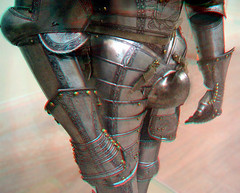Germany has, after much soul-searching, decided to supply weapons to Kurds fighting against ISIS.
It must be slightly awkward, then, to discover that ISIS already have German weapons

Eliot Higgins identifies these as HOT anti-tank missiles, made by a Franco-German consortium called Euromissile. 1000 of them were sold to Syria in the late 70s — officially by France, though Germany was deeply involved in the manufacture, and would have been consulted about the sale.
Embarrassingly, these HOT missiles are close cousins of the MILAN missiles, which Germany will now be giving to the Kurds. So Germany, usually one of the better-behaved arms exporters, gets the cachet of arming both sides with more-or-less the same weapons. Oops.
In fact, selling these to Syria was controversial at the time in Germany. Not only did it break Germany’s rules on not arming “areas of conflict” — but since the conflict in question was between Syria and Israel, it caused strong protests from Israel. The German excuse was that, despite their German components, these were a French responsibility:
Government sources said missile exports to France were legal, provided the necessary government export permit was obtained, but once the items were in France, there was no ban on the re-export of the items to third countries.
This fit into an ongoing pattern by which Germany used France as the scapegoat for its weapons sales:
In a government agreementconcluded in 1972 Bonn and Paris agreed to interpretand apply their countries’ weapons export law “in the spirit of German-French cooperation.”
A little after this sale, Germany went even further in sidestepping responsibility:
Under SPD [Social Democratic Party of Germany] Chancellor Helmut Schmidt the Federal Government stipulated in 1982 that German parts for “Roland,” “Hot,” and”Milan” that were incorporated in the weapon in France “will be treated as goods of French origin.” They simply turned into French parts that are not subject to German export control. Thus, German consciousness remained unburdened.
[based partly on research by Charles Lister and Brown Moses]
from the main blog – http://ift.tt/1nlL3BW
